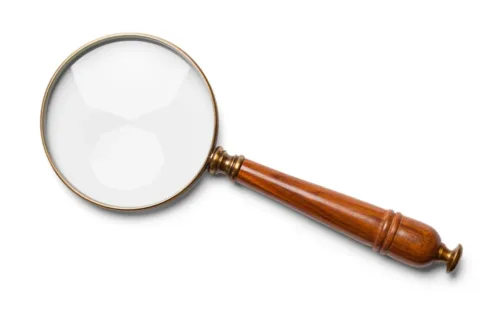Finding the right medication for mental health can feel like searching for a key in the dark—frustrating, overwhelming, and sometimes discouraging. But when that key finally fits, when you find the right medication at the right dose with proper monitoring, it can unlock a door to a life you never thought possible. The journey to optimal medication management isn’t just about prescriptions—it’s about partnership, precision, and patience.
The Foundation of Evidence-Based Mental Health Treatment
When we talk about mental health treatment, the conversation often centers around therapy versus medication, as if we must choose one or the other. However, leading mental health organizations, including the National Institute of Mental Health (NIMH) and the American Psychiatric Association (APA), emphasize that for many conditions, the most effective approach combines both.
For most patients with depression, optimal treatments include a selective serotonin reuptake inhibitor, a serotonin-norepinephrine reuptake inhibitor, mirtazapine, or bupropion, according to APA guidelines. This isn’t a one-size-fits-all recommendation—it’s a starting point that requires careful individualization through proper medication management.
The NIMH and APA consistently recommend medication for moderate to severe depression and other mental health conditions, often alongside talk therapy. As clinical guidelines note, people with moderate or severe depression are usually prescribed medication as part of treatment, not as a replacement for other interventions, but as a crucial component of comprehensive care.
Why Medication Management Is More Than Just Taking Pills
Medication management isn’t simply about swallowing a pill each morning—it’s a sophisticated process that requires expertise, monitoring, and ongoing adjustment. When you work with a qualified psychiatrist, you’re engaging in a collaborative process that involves:
Comprehensive Assessment
Before any medication is prescribed, a thorough evaluation considers your unique biochemistry, medical history, current symptoms, lifestyle factors, and treatment goals. This assessment might reveal connections between your mental health symptoms and other factors like low testosterone symptoms or nutritional deficiencies that could influence treatment decisions.
Precise Dosing
The difference between an effective dose and an ineffective one can be measured in milligrams. Too little, and you won’t experience therapeutic benefits. Too much, and side effects may become unbearable. Finding your optimal dose requires clinical expertise and careful monitoring.
Ongoing Monitoring and Adjustment
Your brain chemistry isn’t static—it changes with stress, life circumstances, hormonal fluctuations, and other medications. Regular follow-ups with your psychiatrist ensure that your medication continues to serve you optimally as your life evolves.
Side Effect Management
Every medication has potential side effects, but experienced providers know how to minimize these while maximizing benefits. Sometimes this involves timing adjustments, complementary treatments, or switching to alternative medications.
The Science Behind Psychiatric Medications
Understanding how psychiatric medications work can help you become a more informed partner in your treatment. Different classes of medications target various neurotransmitter systems:
Antidepressants for Depression and Anxiety
Modern antidepressants primarily work by adjusting levels of serotonin, norepinephrine, or dopamine in your brain. These neurotransmitters influence mood, anxiety, sleep, appetite, and energy levels. Proper medication management for anxiety and depression involves finding the right medication that targets your specific symptom profile.
Mood Stabilizers for Bipolar Disorder
Individuals with bipolar disorder require medications that can prevent both manic and depressive episodes. Mood stabilizers work through various mechanisms to provide emotional stability, but finding the right combination requires careful monitoring and adjustment.
Stimulants and Non-Stimulants for ADHD
ADHD medications work by increasing availability of dopamine and norepinephrine in specific brain regions responsible for attention and executive function. The key is finding the right medication and dose that improves focus without causing unwanted side effects.
Anxiolytics for Panic and Anxiety Disorders
Medications for panic disorders and severe anxiety may include fast-acting options for acute symptoms and longer-acting medications for ongoing management. Each serves a different purpose in your treatment plan.
The Importance of Finding the Right Provider
Not all mental health providers are equally qualified to manage psychiatric medications. While psychologists and therapists provide invaluable talk therapy services, medication management specifically requires a medical degree and specialized training in psychopharmacology.
What to Look for in a Psychiatrist
When searching for a “psychiatrist near me,” consider these essential qualifications:
Board Certification: Ensure your provider is board-certified in psychiatry, indicating they’ve completed rigorous training and passed comprehensive examinations.
Experience with Your Condition: Look for providers who have specific experience treating your diagnosis, whether that’s PTSD, OCD, mood disorders, or other conditions.
Collaborative Approach: The best psychiatrists work as partners, explaining treatment options, discussing potential side effects, and involving you in decision-making.
Integration with Other Treatments: Excellent psychiatrists coordinate with your other providers, including therapists, primary care physicians, and specialists addressing issues like low T or other medical concerns.
The Medication Management Process: What to Expect
Initial Consultation
Your first appointment typically lasts 60-90 minutes and includes:
- Comprehensive psychiatric history
- Medical history review
- Current symptom assessment
- Discussion of treatment goals
- Initial medication recommendations
The Titration Process
Most psychiatric medications require a gradual increase to therapeutic levels. This process, called titration, allows your body to adjust while minimizing side effects. Your psychiatrist will provide a specific schedule for dose increases and timeline expectations.
Regular Follow-Up Appointments
Initially, you’ll likely see your provider every 2-4 weeks to monitor progress and adjust dosing. As your medication stabilizes, appointments may become less frequent, but ongoing monitoring remains crucial.
Laboratory Monitoring
Some medications require periodic blood tests to ensure safety and effectiveness. Your provider will explain what tests are needed and why they’re important for your specific treatment plan.
Integrating Medication with Holistic Care
The most effective mental health treatment often combines medication management with other therapeutic approaches. This integrated model might include:
Therapy and Counseling
Talk therapy provides essential skills for managing symptoms, processing emotions, and developing healthy coping strategies. Whether you’re engaged in therapy for depression, trauma processing for PTSD, or anxiety management techniques, medication can enhance your ability to engage meaningfully in the therapeutic process.
Lifestyle Interventions
Working with a personal trainer for fitness, engaging in nutrition coaching, or exploring naturopathy approaches can complement your medication regimen. These lifestyle factors can influence medication effectiveness and overall mental health outcomes.
Hormone Optimization
For some individuals, hormonal imbalances contribute to mental health symptoms. Addressing low testosterone symptoms or other hormonal issues alongside psychiatric medication can optimize treatment results.
Common Medication Management Challenges and Solutions
Challenge: “My medication isn’t working”
Solution: Medication effectiveness can take 4-12 weeks to fully evaluate. If there’s no improvement after adequate time and dosing, your psychiatrist can adjust the dose, switch medications, or add complementary treatments.
Challenge: “I’m experiencing side effects”
Solution: Most side effects are manageable through timing adjustments, dose modifications, or additional medications. Never stop psychiatric medications abruptly—work with your provider to address concerns safely.
Challenge: “I feel better, so I don’t need medication anymore”
Solution: Feeling better often indicates that your medication is working effectively. Discontinuing medication without medical supervision frequently leads to symptom relapse. Discuss any concerns about long-term treatment with your psychiatrist.
Challenge: “I can’t afford my medications”
Solution: Many pharmaceutical companies offer patient assistance programs, and generic alternatives are often available. Your psychiatrist can help you find affordable options that maintain treatment effectiveness.
The Role of Online Psychiatrists in Modern Care
The rise of telehealth has made psychiatric care more accessible than ever. Online psychiatrists can provide comprehensive medication management services, including:
- Initial evaluations and diagnoses
- Prescription management and adjustments
- Regular monitoring and follow-up care
- Coordination with local providers for laboratory tests
For residents of Washington, Idaho, New Mexico, and Utah, telemedicine options can eliminate geographical barriers and improve access to specialized psychiatric care.
When Medication Management Becomes Urgent
Some situations require immediate psychiatric attention:
- Severe worsening of depression or anxiety symptoms
- Emergence of panic attacks or anger outbursts
- New or unusual side effects from medications
- Thoughts of self-harm or suicide
- Symptoms of mood disorders that interfere with daily functioning
Don’t wait for your next scheduled appointment if you’re experiencing concerning symptoms. Contact your provider immediately or seek emergency care when necessary.
Building Your Mental Health Support Team
Optimal mental health care involves a coordinated team of providers, potentially including:
- Psychiatrist for medication management
- Therapist or psychologist for talk therapy
- Naturopathic doctor (ND) for integrative approaches
- Personal trainer for fitness and wellness
- Nutrition coach for dietary optimization
- Primary care physician for overall health coordination
Each provider brings unique expertise to your care, and effective communication between team members enhances treatment outcomes.
The Long-Term Perspective: Medication as a Tool for Growth
Psychiatric medications aren’t meant to change who you are—they’re designed to give you the neurochemical stability needed to become who you’re meant to be. When properly managed, medications can:
- Reduce symptom severity enough to engage fully in therapy
- Provide emotional stability for relationship building and career development
- Create the mental clarity needed for personal growth and healing
- Enable you to develop and maintain healthy lifestyle habits
Think of medication as scaffolding during construction—it provides necessary support while you build the skills, insights, and habits that create lasting wellness.
Your Medication Management Journey Starts Here
Every person’s path to optimal mental health is unique, but you don’t have to navigate it alone. Whether you’re dealing with depression, anxiety, ADHD, PTSD, or other mental health conditions, proper medication management can be a transformative component of your treatment plan.
The key is finding qualified providers who understand that medication is just one tool in a comprehensive wellness toolkit. The best outcomes occur when medication management is combined with therapy, lifestyle optimization, and ongoing support.
Remember, seeking help for mental health concerns isn’t a sign of weakness—it’s an act of courage and self-care. You deserve to feel your best, and with proper medication management and comprehensive care, that goal is entirely achievable.
Your brain chemistry doesn’t have to be your destiny. With the right partnership, patience, and professional guidance, you can find the treatment approach that helps you thrive.
Ready to take the next step in your mental health journey? Our experienced team of psychiatric professionals understands that effective medication management is both an art and a science. We’re committed to working with you to find the right treatment approach for your unique needs, combining evidence-based medication management with comprehensive care that addresses your whole health picture.
Visit our website to learn more about our personalized approach to psychiatric care and medication management. Because finding the right treatment shouldn’t be a matter of trial and error—it should be a collaborative journey toward wellness.







